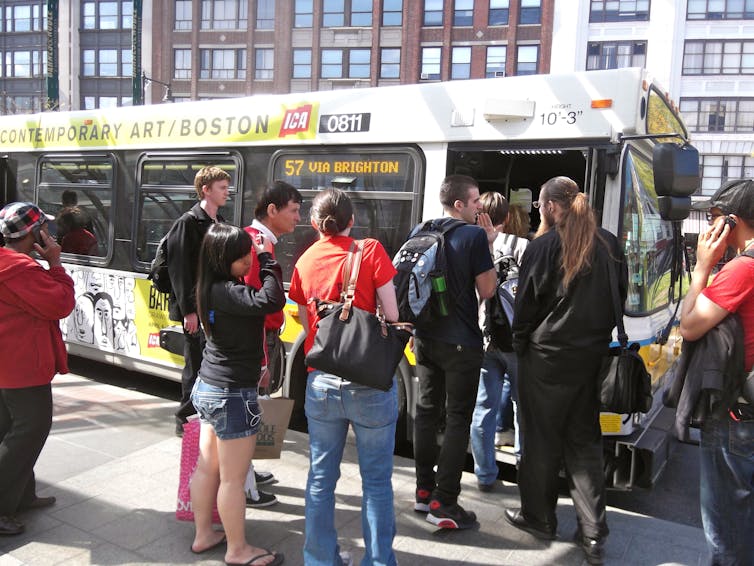Can We Adopt a More Nuanced Attitude Toward Lockdown Measures?
Was Neil Ferguson wrong because he let a woman visit him during lockdown?
If anyone is an expert on when it might be OK to breach lockdown regulations, it’s one of the country’s leading epidemiologists. But after breaking the rules, Neil Ferguson felt the need to step down from his position as a government adviser.
Twice during lockdown, Ferguson allowed a woman he is said to be in a relationship with to visit him. This was despite the UK government, who he was advising on COVID-19, forbidding people from visiting friends and family they don’t live with.
Does his expertise mean we should judge his indiscretions lightly? No. The lockdown strategy requires us all to act as if we are stupid, as if we cannot make judgements about what is safe or unsafe on the basis of the evidence. That applies as much to Ferguson as to you or me.
Ferguson was hypocritical. But hypocrisy is rather a boring vice – all it means is that there was a gap between his words and his actions. So, which were wrong: his words about the importance of lockdown, or his actions of breaking those measures?
The unfairness of free riding
It might seem obvious that the problem was his actions. By now, we all know why we should stay at home: to protect the NHS and save lives. But if everyone is staying home except one or two of us, the NHS will probably be protected whatever we do. What’s wrong with a few small violations?
Philosophers, economists and social scientists have thought about similar problems. Here’s one standard example. Imagine you see everyone else buy a ticket as they board the bus. Enough tickets have been bought that the bus will run, even if you don’t buy one. So, you sneak on. Everyone else still gets to their destination, but something about your actions seems worrying.
Most analyses of these free-riding cases centre around ideas of fairness. In free riding, we receive a benefit from some socially coordinated activity but refuse to contribute ourselves. These refusals have an odd character. The activity can carry on generating benefits even if some people don’t cooperate, but not if everyone stopped cooperating. The bus will run even if you don’t buy a ticket, but not if no one did. If we free ride, we rely on everyone else to do their share while not doing our own. That’s unfair.

Notions of free riding are central to many real-world debates. They are certainly relevant to the question of vaccination: if I know that everyone else has received a vaccine to protect against a disease, then why bother getting vaccinated myself? Herd immunity will protect me and everyone else.
The short answer is that while you don’t need to be vaccinated to be protected, you do have an ethical obligation to maintain this public good.
This notion also helps us understand small violations of lockdown rules. Given that everyone else is in lockdown, two people meeting up is extremely unlikely to cause harm. However, the meet-up is safe only because everyone else is in lockdown. If everyone did it, meeting up wouldn’t be safe. The problem isn’t that meeting up is risky, but that it’s unfair.
Why it’s time to act stupid
But there’s a twist. Free riding involves a “What if everyone did it?” question, and a lot depends on the “it”.
We know that Ferguson himself has already had COVID-19, and so was unlikely to be infectious. Perhaps lots of people in Ferguson’s position could have meet-ups while continuing to protect the NHS and save lives. What would be wrong with adopting a more nuanced attitude towards lockdown measures – allowing people to judge for themselves how risky their behaviour is?
Here’s an obvious answer: people are often bad at estimating risks.
These problems are even worse in our current situation. It is hard to judge whether you have had COVID-19 or seasonal flu, and judgements about safety depend on complex medical and mathematical considerations. Most of us are unqualified to decide that we are safe to stand closer than two metres apart.
Still, not everyone is equally bad at such calculations. For example, maybe prominent epidemiological modellers such as Ferguson are well situated to judge when it’s OK to break the rules. Why not give some people a pass?
The answer to this question takes us back to fairness. Normally, we enjoy what philosophers call “intellectual autonomy”; we are free to exercise our own judgement in forming our beliefs. One of the costs of lockdown is giving up some of this autonomy. We have to follow the rules, even if we feel certain they don’t apply to us.
Consider someone who, against this backdrop, makes their own judgements about what behaviours are risky. They are exercising their own intellectual autonomy on the basis that other people aren’t doing the same. That’s unfair in much the same way as taking the bus without buying a ticket. And just as not buying a ticket is unfair even when the bus will run anyway, this exercise of your intellectual autonomy can be unfair even when you’re likely to be right.
Beyond the tawdry tabloid headlines and cries of hypocrisy, Ferguson’s indiscretions reveal a deeper, stranger truth. Sometimes, fairness can demand that we act stupid, even when we’re not.
![]()
Stephen John, Senior Lecturer in Philosophy of Public Health, University of Cambridge
This article is republished from The Conversation under a Creative Commons license. Read the original article.
Image: Reuters

